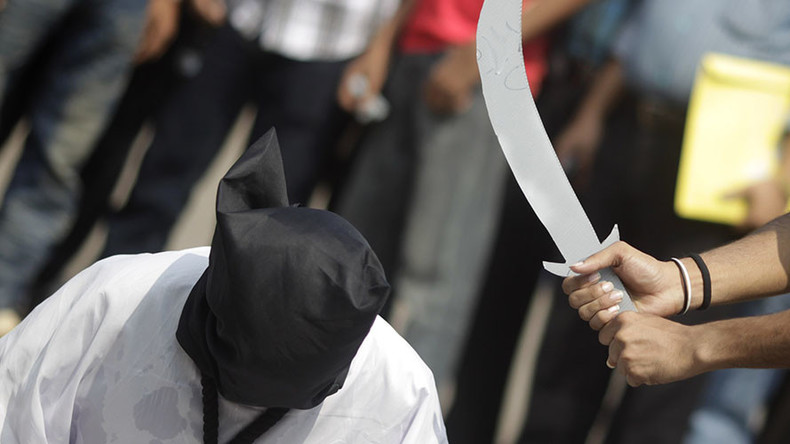The Saudi Ministry of Interior announced in a statement on Monday that the death sentence was carried out against Muslim bin Ahmed bin Musallam al-Milad.
“Al-Milad, a Saudi national, joined a terrorist cell, which at times got into confrontations with security forces and carried out armed attacks on them,” the statement alleged.
The statement claimed that al-Milad has “undermined domestic security,” and “traded in firearms and narcotics.”
It further alleged that the young man “supported people wanted for armed clashes with security forces, financed terrorism and terrorist acts, and harbored wanted criminals.”
The Saudi national was initially referred to the kingdom’s Specialized Criminal Court, where he was found guilty of charges leveled against him, and handed down a death sentence, which was upheld on appeal, it added.
Earlier this month, Saudi Arabia announced the execution of three people in the Shia-populated Eastern Province over fabricated charges.
Hussein bin Ali bin Muhammad al-Mohishi, Fazel bin Zaki bin Hossein Ansif, and Zakaria bin Hassan bin Muhammad al-Mohishi received the death penalty.
Saudi Arabia’s oil-rich and predominantly Shia Eastern Province has been the scene of peaceful demonstrations since February 2011.
Protesters demand reforms, freedom of expression, the release of political prisoners, and an end to economic and religious discrimination against the region.
The protests have been met with a heavy-handed crackdown, with regime forces increasing security measures across the province.
Ever since Mohammed bin Salman became Saudi Arabia’s de facto leader in 2017, the kingdom has ramped up arrests of activists, bloggers, intellectuals, and others perceived as political opponents.
It shows almost zero tolerance for dissent even in the face of international condemnations of the crackdown.
As a result, Muslim scholars have been executed and women’s rights campaigners have been put behind bars and tortured as freedoms of expression, association, and belief continue to be denied.
